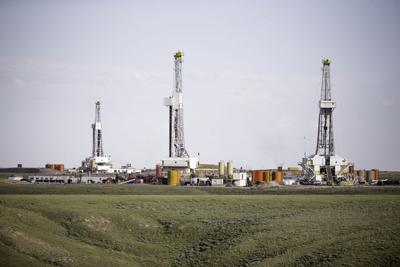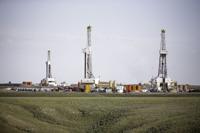(The Center Square) – Pennsylvania continues to be a major producer of natural gas, and some state leaders want more transparency and information from the oil and gas industry.
A proposed bill from Christopher Rabb, D-Philadelphia, would expand the reporting requirements for shale gas companies on their wells.
House Bill 2724 requires companies to detail the cost of temporary water supplies to residents affected by fracking operations, report the number of nondisclosure agreements that have been signed by residents, and how the gas well operations have affected public resources and infrastructure.
The frequency of heavy trucks on rural roads can put a burden on communities near gas-producing wells.
“It was a painful thing to see,” Rabb said, when he visited a fracking area in northeast Pennsylvania. “Otherwise beautiful surroundings, and every single moment – literally, I mean I could not overstate this fact – there were trucks on these narrow roads bringing in freshwater and taking out wastewater. It was nonstop – you could hear it, you could smell it, you could see it. And the toll this took on public infrastructure for private benefit was just grotesque.”
The bill was referred to the Environmental Resources and Energy Committee July 1, but it faces difficulty in advancing to the full House for a vote with the Democratic Party being in the minority. Rabb also mentioned the oil and gas industry’s lobbyists as a hurdle when pushing for greater transparency.
Some information is already available. Well operators disclose the the additives they use in the fracking process, for example, through the independent clearinghouse FracFocus. They do not, however, have to detail nondisclosure agreements signed with landowners. Requiring a count of NDAs could give the public a glimpse of how often they’re used.
A 2013 case outside Pittsburgh involved accusations of children getting sick after drilling activity happened nearby. It was eventually settled for $750,000, but the family agreed to a strict gag order. Though Rabb’s bill wouldn’t provide public details of cases like that, it would provide a head count of similar cases.
“It’s a way of getting a sense of the enormity of the issue in this industry and these regions where there’s fracking – without actually disclosing confidential information,” Rabb said.
He also sees the information as an opportunity to give a more well-rounded picture of the energy industry’s trade-offs or unintended effects.
“When we think about energy production, so few people, so few consumers, so few residents think about what is the cost of that production,” Rabb said. “We talk about jobs and cheap fuel it produces (at least in theory), but we don’t talk about what is the cost of private entities on the public infrastructure that we and we alone pay for as taxpayers.”









